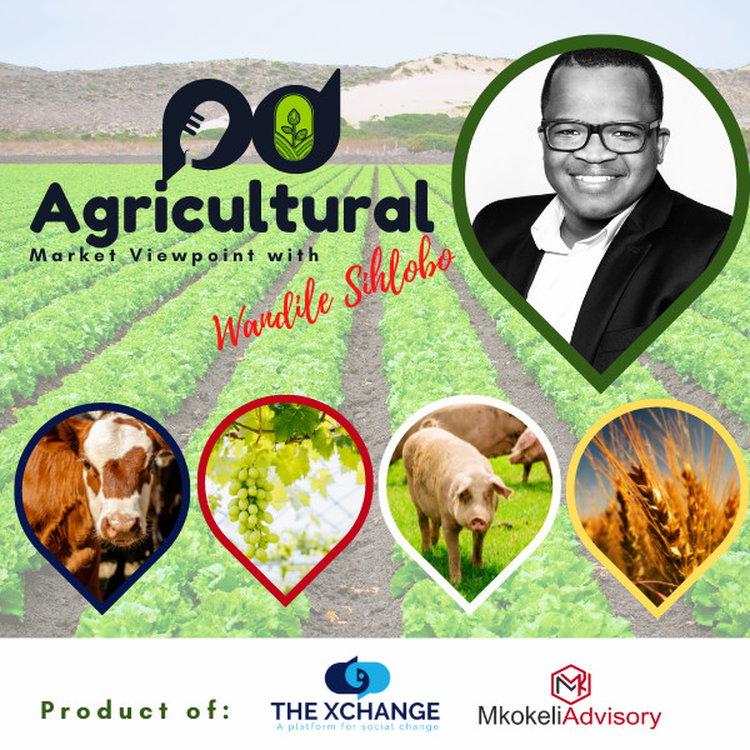
Expected El Niño in 2023/24 summer does not necessarily foretell a bad harvest
Loading player...
Forecasts of an El Niño occurrence in the 2023/24 summer season do not necessarily equate to a bad agricultural season. The upcoming season of possible below-normal rainfall, i.e., El Niño, follows a rare consecutive four years of heavy rains that have improved soil moisture and natural grazing veld.
This means there is a natural cushion for agricultural activity even if the rains are below the average(typically around 500 mm) in South Africa. What will be necessary, however, is for the showers to fall in critical periods, such as seed germination and pollination stages of growth, which are all essential for crop growing.
It would not be South Africa's first time in such a fortunate position. The summer of 2018/19 had a weather El Niño event. Still, the rains fell in critical periods, and South Africa attained a decent crop harvest, with commercial maize at 11,2 million tonnes, soybeans at 1,2 million tonnes and sunflower seed at 678 000 tonnes.
Other field crops and horticulture also achieved decent yields that year. Notably, the 2018/19 season was not preceded with favourable four years of favourable rainfall that improved soil moisture. Therefore, the current position is better than the most recent El Niño period.
Various weather forecasters all share the same view in terms of the likelihood of the occurrence of an El Niño. In the past few months, we reflected on forecasts by the South African Weather Service and Columbia University's International Research Institute for Climate and Society, which all point to a higher probability of El Niño occurrence towards the end of this year. The latter has placed its possibility at over 80% at the start of this month.
Under such conditions, the agricultural sector and agribusinesses must plan for this changing operational environment from the conducive four years that supported growth in the sector. Still, this weather outlook should not necessarily imply less investment in agriculture or elevated risk.
Such fears are likely as some people still remember the harsh drought of the 2015/16 production season, where maize output fell to 7,8 million tonnes, soybeans at 742 000 tonnes, and sunflower seed fared better at 755 000 tonnes as farmers switched white maize hectares to sunflower seed and cotton in the western regions of South Africa. That season, the livestock industry, various field crops and horticulture also suffered major losses across the country. Importantly, the 2015/16 season was preceded by a drier production period in 2014/15, and soil moisture was too low in various regions. Thus, the fall in yields was notable.
We discuss more in this week's podcast segment.
My writing on agricultural economic matters is available on my blog: https://wandilesihlobo.com/
Podcast production by: Lwandiso Gwarubana, Richard Humphries, and Sam Mkokeli
This means there is a natural cushion for agricultural activity even if the rains are below the average(typically around 500 mm) in South Africa. What will be necessary, however, is for the showers to fall in critical periods, such as seed germination and pollination stages of growth, which are all essential for crop growing.
It would not be South Africa's first time in such a fortunate position. The summer of 2018/19 had a weather El Niño event. Still, the rains fell in critical periods, and South Africa attained a decent crop harvest, with commercial maize at 11,2 million tonnes, soybeans at 1,2 million tonnes and sunflower seed at 678 000 tonnes.
Other field crops and horticulture also achieved decent yields that year. Notably, the 2018/19 season was not preceded with favourable four years of favourable rainfall that improved soil moisture. Therefore, the current position is better than the most recent El Niño period.
Various weather forecasters all share the same view in terms of the likelihood of the occurrence of an El Niño. In the past few months, we reflected on forecasts by the South African Weather Service and Columbia University's International Research Institute for Climate and Society, which all point to a higher probability of El Niño occurrence towards the end of this year. The latter has placed its possibility at over 80% at the start of this month.
Under such conditions, the agricultural sector and agribusinesses must plan for this changing operational environment from the conducive four years that supported growth in the sector. Still, this weather outlook should not necessarily imply less investment in agriculture or elevated risk.
Such fears are likely as some people still remember the harsh drought of the 2015/16 production season, where maize output fell to 7,8 million tonnes, soybeans at 742 000 tonnes, and sunflower seed fared better at 755 000 tonnes as farmers switched white maize hectares to sunflower seed and cotton in the western regions of South Africa. That season, the livestock industry, various field crops and horticulture also suffered major losses across the country. Importantly, the 2015/16 season was preceded by a drier production period in 2014/15, and soil moisture was too low in various regions. Thus, the fall in yields was notable.
We discuss more in this week's podcast segment.
My writing on agricultural economic matters is available on my blog: https://wandilesihlobo.com/
Podcast production by: Lwandiso Gwarubana, Richard Humphries, and Sam Mkokeli

